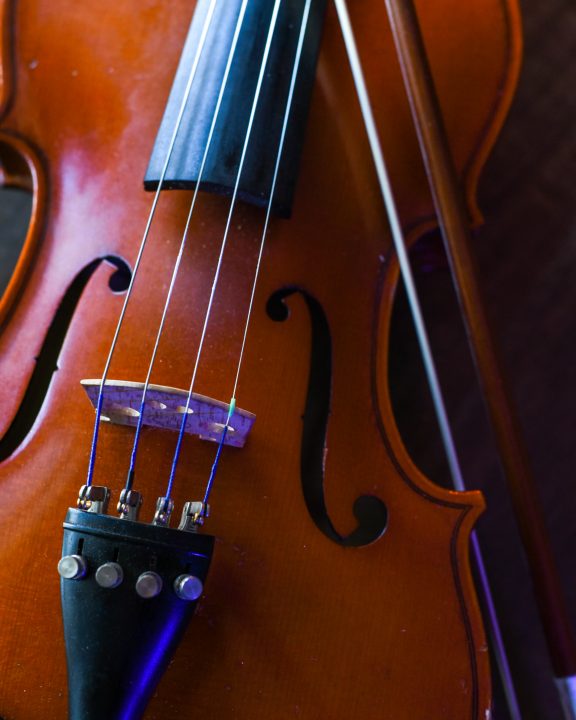The jostling 25-minute ride on a school bus faded out of memory once the musical journey of the Baltimore Symphony Orchestra on a school field trip began. As a viola player for 10 years in three school orchestras, I attended two such shows, where I saw and heard professional musicians playing the same instruments that my friends and I did. I immensely enjoyed these experiences, and eventually came to realize the enormous privilege of living so close to one of the finest symphony orchestras in America.
In my junior year of high school, I went to the Joseph Meyerhoff Symphony Hall for the second time in my life to watch my classmates appear on stage. They had been accepted to the BSO’s Side by Side program, undergoing an audition and enduring countless rehearsals with the group, all the while learning how a professional orchestra runs.
One of my best friends, who also played viola in our school orchestra, came onstage for the second piece: a viola concerto featuring her as the soloist. She did a special audition to be our county’s soloist for this show, and got the call back that very same day that she had been chosen. As a musician, I loved seeing my instrument represented, and she gave a stellar performance. As her friend, I swelled with pride for her talent, hard work and courage in preparing for months and then performing in front of a large audience in that storied setting.
Naturally, I have spoken to her about her experience many times since. She is currently a music performance major at the University of Delaware, and says that being a part of the BSO Side by Side program three times gave her insight into performing with a professional orchestra, solidifying her decision to pursue the degree that reflects her passion for her instrument. Despite her dedication to her studies and practicing her art, her career path ahead is a challenging one. Even the BSO that we know and love is struggling through some tumultuous times, raising questions for young classical musicians in the Baltimore area.
The BSO has made numerous press releases over the past months that shed light on its current situation. Last May, they announced the cancellation of their Summer 2019 program due to “financial challenges” including $16 million lost over the preceding decade, leading to a three-month lockout of their musicians as reported by NPR. On June 27, 2019, they confirmed that medical and dental insurance — which had been set to expire on June 30 — would be covered for musicians during the lockout period due to donations. The implication was that the musicians, who were out of work for the summer, did not have guaranteed medical or dental insurance.
Amidst the orchestra’s financial circumstances, the Baltimore Sun reported on January 16, 2020, that Governor Hogan, in his 2020-2021 budget, attempted to block the Maryland General Assembly’s proposed $1.6 million in funding for the BSO. Two bills filed by Baltimore Symphony Orchestra synopses would notably require “the Governor to appropriate certain amounts of money to the Baltimore Symphony Orchestra in fiscal years 2021 through 2026” while dropping the issue of the 2020-2021 funding, in an attempt to break the deadlock.
Another link in the chain of change facing the orchestra is that longtime Music Director Marin Alsop is set to leave this position after the 2020-2021 season, as the BSO announced in a Feb. 26, 2020 press release. While not inherently indicative of anything negative, and certainly a possibility for the orchestra to have a fresh start, her departure does contribute to the growing sense of uncertainty surrounding the BSO. There are many moving parts surrounding the BSO, and it is unclear how they will land.
I no longer play the viola in any sort of organized orchestra, but I still care about local music and have always admired the classical musicianship found in the BSO. They inspired my friends and me, and as young classical musicians, that was important. For aspiring professional performers, it is disheartening to see even the respected musicians of the BSO face unemployment and no guaranteed insurance for weeks on end. Careers in the performing arts are notoriously risky, but when large establishments have issues like this, musicians must weigh their dreams against these uncontrollable realities.
One way to help the BSO and other struggling groups is through donations; last summer, donations meant that the musicians of the BSO had access to some of the basic benefits of their jobs. But on a larger scale, state and federal governments need to prioritize funding for the arts. The BSO is a source of inspiration and experience for classical performers, especially young musicians in the Baltimore area. To continue empowering them to work hard and fulfill their artistic potential, the Maryland state government needs to work with the BSO by passing and enforcing measures like the current bills, which will have hearings on March 12, that provide necessary funding.


